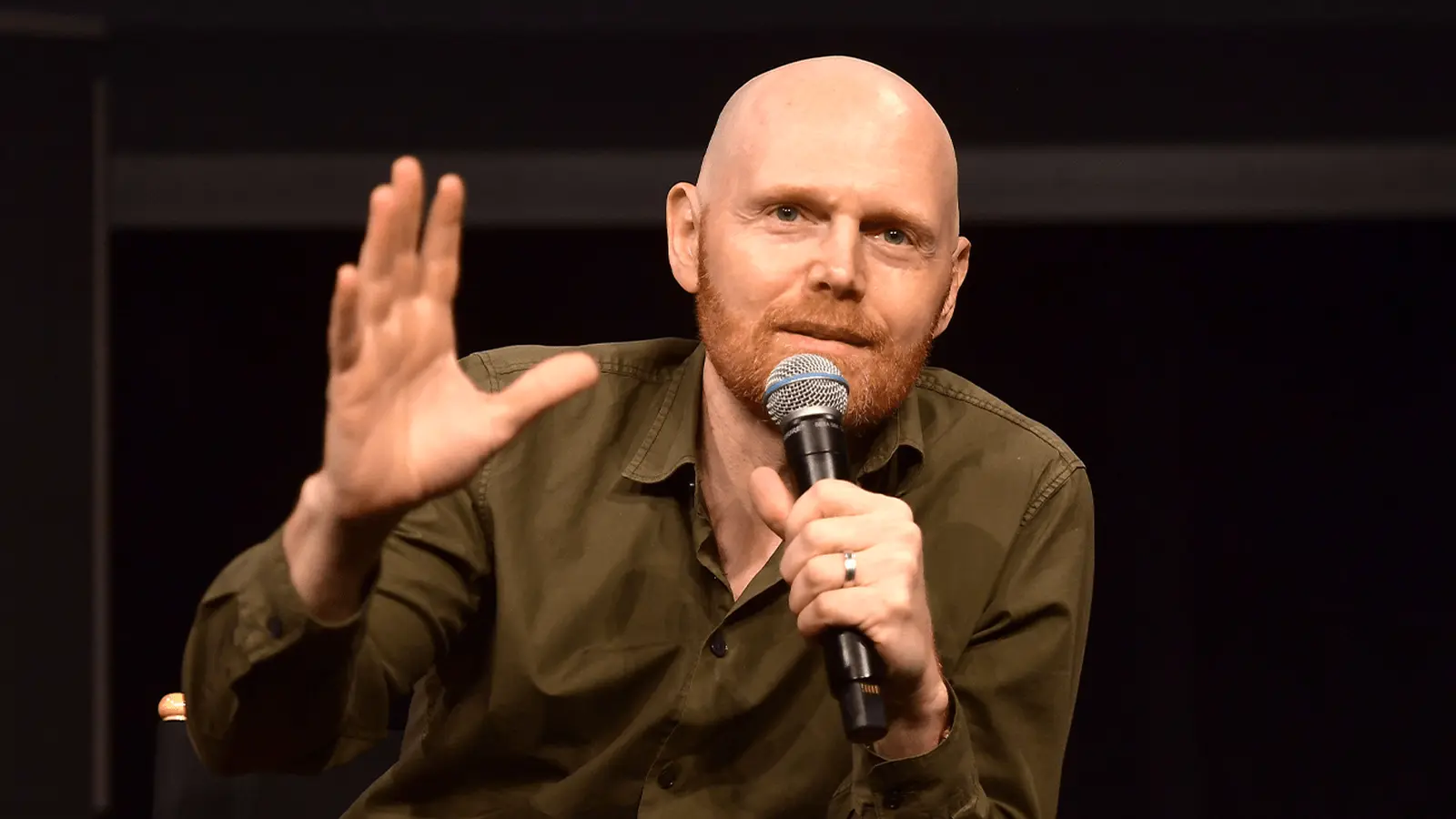8 Minutes
When Bill Burr landed in the Gulf last week, he brought more than jokes—he brought a lightning-rod conversation about art, ethics and cultural exchange. The veteran stand-up and actor spent several days performing in the region, warming up in Bahrain before taking the stage at the opening night of the much-discussed Riyadh Comedy Festival. His podcast recap has since reignited debates about whether comedians should perform in countries with fraught human-rights records, or whether live comedy can function as a bridge across boundaries.
Burr’s account reads like a travel piece with punchlines. He admits to a knot of nerves on arrival—an anxiety many performers describe when crossing unfamiliar cultural and legal lines—but also a surprise. After a set in Bahrain, which he used as a cultural barometer, he found audiences hungry for the rhythms of American stand-up. Observing barroom banter and everyday life, he concluded, in blunt Burr fashion, that the people he met were 'just like us': primed for live entertainment, curious about Western culture, and keen to laugh.
Onstage in Riyadh he says he tested the waters slowly, gradually ramping up his regular material until he felt the room would follow him. Burr described a reciprocal energy: the audience wanted 'real stand-up comedy'—not a sanitized variety show—and the performers rewarded that appetite. He also noted that organizers appeared to have negotiated limits on material down to a few explicit taboos, namely content that mocked royals or religion. Whether those restrictions were tightened or relaxed before the festival remains a point of debate; at least one comedian posted the festival’s initial rules online and declined the invitation on principle.
Why the firestorm? The Riyadh festival has been branded by organizers as a global-scale event and features dozens of headline names. Yet performers who accept invitations to Saudi Arabia face accusations of 'comedy-washing'—the idea that cultural spectacles can be used to polish a country’s image without addressing deeper civil-rights issues. Critics such as David Cross and Marc Maron have been outspoken, saying performers who play the festival are normalizing a regime accused of repression. An MSNBC opinion piece labeled the event as an instrument of soft PR rather than genuine liberalization.

This is not a new cultural dilemma. The term 'soft power'—coined by political scientist Joseph S. Nye—captures how art, music and film can influence global perceptions. Musicians and actors have long faced similar choices. Sting’s 2009 performance in Uzbekistan, for example, drew backlash but also sparked conversation about whether cultural exchange can be a lever for openness. Back in the 1990s and 2000s, bands that played Cuba or inaugurated festivals in controversial locations likewise provoked questions about whether a stage is an implicit endorsement.
For the comedy community, the arguments have particular texture. Stand-up is intimate and often politically sharp; a comedian’s job is to push boundaries. Critics fear that performing under explicit restrictions risks self-censorship—or worse, becoming complicit with a state’s public relations goals. Supporters contend that performing for local audiences, engaging in dialogue and exposing people to differing ideas can be transformative. Bill Burr’s take leans to the latter: he describes the experience as 'definitely top three' of his career and predicts positive long-term effects.
Industry context matters, too. Streaming platforms and global festivals have expanded comedians’ stages beyond clubs and cable specials; now a Netflix special can reach Riyadh as quickly as it reaches Rochester. That reach is a two-edged sword. On one hand, artists bring perspectives to new audiences; on the other, they bring visibility—and potential revenue—closely watched by critics who worry that financial incentives cloud moral judgment. Promoters and state ministries see an opportunity to showcase modernization; artists see an opportunity to perform and test the limits of free expression in new contexts.
Notably, Burr’s description also highlights something subtle: the degree to which everyday globalization complicates cold-war style stereotypes. Observing Western brands, restaurants and lifestyles in Riyadh, he emphasized that the cultural landscape is not uniformly antagonistic to Western entertainment. This observation—obvious to many who travel widely—matters because it reframes the stakes: the audiences who attended the festival are often young, media-savvy and plugged into global culture.
There are creative and practical takeaways for performers. Several comics reportedly adjusted sets, consulted local liaisons and used warm-up gigs to calibrate material. Such behind-the-scenes choreography is part of modern touring: crew communication, translators or cultural consultants, and legal guidance are now routine when shows cross borders. For comedy fans and industry watchers, the festival also underscored the tension between art’s universal appeal and politics’ persistent gravity.
Fan and community reaction has been mixed. Social platforms filled with clips of Burr’s set and heated threads debating whether the show uplifted local audiences or served as a PR tool. Some Saudi and regional viewers praised the candid, unvarnished feel of the performances and relished seeing international comics in the kingdom. Criticism from fellow comedians and activists, meanwhile, reminded readers that visibility can be weaponized by states eager to signal reform.
Comparisons are instructive. Dave Chappelle’s past controversies around trans-related jokes and Louis C.K.’s career after public scandal have framed how audiences assess a comedian’s ethics beyond geography. Performers like Kevin Hart—who has also faced backlash for past remarks—illustrate how public readiness to forgive or cancel can vary by context and industry dynamics. These precedents show that a performer’s choices—not just their material—shape public narratives for years.
'Artists and cultural curators navigate a tightrope between ethics and engagement,' says Marko Jensen, a cinema historian. 'Performances in contentious places force a reckoning about the limits of cultural diplomacy. Sometimes art opens cracks in closed systems; sometimes it unintentionally props them up.' His point captures the paradox at the festival’s heart: the same concert that feels liberating to audiences can look like complicity from afar.
For film and series enthusiasts, the Riyadh debate has cinematic echoes. Think of filmmakers who accept state funding or festival premieres at politically charged events—each choice colors how a work is received. Directors, actors and comedians are part of an ecosystem where distribution, funding and platform relationships shape opportunities and ethical debates. The Riyadh festival is a reminder that culture industries are global and that decisions about where to play, screen or premiere have implications beyond box office tallies.
Where this leads is uncertain. Will the festival encourage incremental openness, as supporters hope? Or will it be remembered as a moment when artists traded principle for payday? The answer likely sits somewhere between: cultural exchange can be both genuinely meaningful and easily co-opted. For creators who believe in art’s connective power, engaging—while maintaining transparency about limits and consequences—may be the only pragmatic route. For critics, continued pressure and accountability remain essential.
Burr’s podcast may not settle the argument, but it reopened it with a performer’s voice rather than a polemic. He framed his experience as human first: nervous, surprised, delighted. The heat of the reaction shows how comedy, even more than cinema, can feel personal because it relies on immediate audience consent. And in that immediacy lies the festival’s most compelling question: whom are we performing for—and at what cost?
Whether you view Burr’s trip as cultural outreach or an ethical misstep, the conversation it sparked will continue to ripple through comedy rooms, film festivals and streaming platforms. It’s a debate that blends art criticism, human-rights advocacy and industry strategy—and one that will shape how artists choose stages in a more connected, complicated world.
Source: hollywoodreporter


Leave a Comment